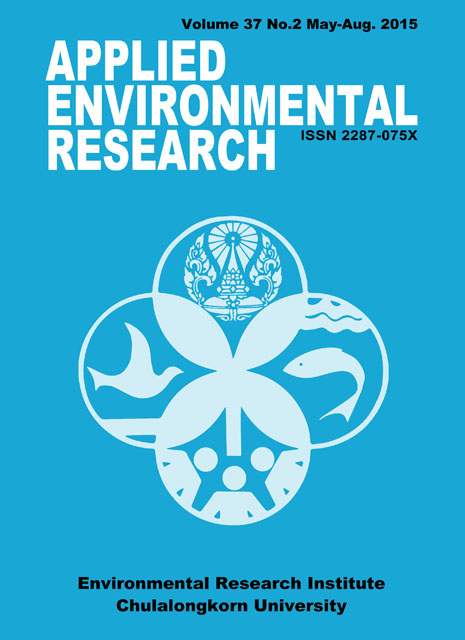Best Management Practices for Sustainability in a Small-scale Community Renewable Energy: Sathya Sai School, Thailand
Main Article Content
Abstract
Organizations working towards standardization have defined universal standards for Best Management Practices (BMPs) for renewable energy (RE) projects. However, these universal standards are better suited to large-scale than small-scale projects such as community renewable energy (CRE) projects. Methods used by CRE projects to achieve BMP status remain to be determined. This paper aims to present various aspects of BMPs for small-scale CRE projects by emphasizing practices that are unrestricted, simple, and adaptable to the surrounding environment, and that will eventually lead to sustainability in the community. The case study involves RE projects at the ‘Sathya Sai School Thailand,’ an education-based community which has a community-like organizational management. The community implements CRE projects for educational-awareness program and to serve their energy needs, starting with micro scale in the community which then will impact on the reduction of climate change crisis at global level. The methodologies used for initial assessment of the involvement of residents and stakeholders, attitude of residents towards CRE project management, and attitudes towards the benefits of CRE project management included (1) field research (i.e., field observations and key-person interviews) and (2) a preference questionnaire. The results identify strengths and weaknesses of CRE project management, and are used to evaluate whether CRE project management constitutes a BMPs by using ‘The scale and sustainability score sheet’ tool. Moreover, recommendations for CRE projects to achieve BMPs status for sustainable community RE are generated from synthesis of sustainability ratings of CRE project management and integration of BMPs theory with the gaps and weaknesses of CRE project management. In conclusion, solutions focus on ‘actual problem-based solving approach’, understanding CRE project management problems and sustained practices by community residents are at the core of BMPs. Experiences can be shared by exchanging RE knowledge among academic and professional networks, and this exchange may improve the suitability of REs in relation to dynamic changes in environmental conditions.
Article Details

This work is licensed under a Creative Commons Attribution-NonCommercial 4.0 International License.
Published articles are under the copyright of the Applied Environmental Research effective when the article is accepted for publication thus granting Applied Environmental Research all rights for the work so that both parties may be protected from the consequences of unauthorized use. Partially or totally publication of an article elsewhere is possible only after the consent from the editors.

